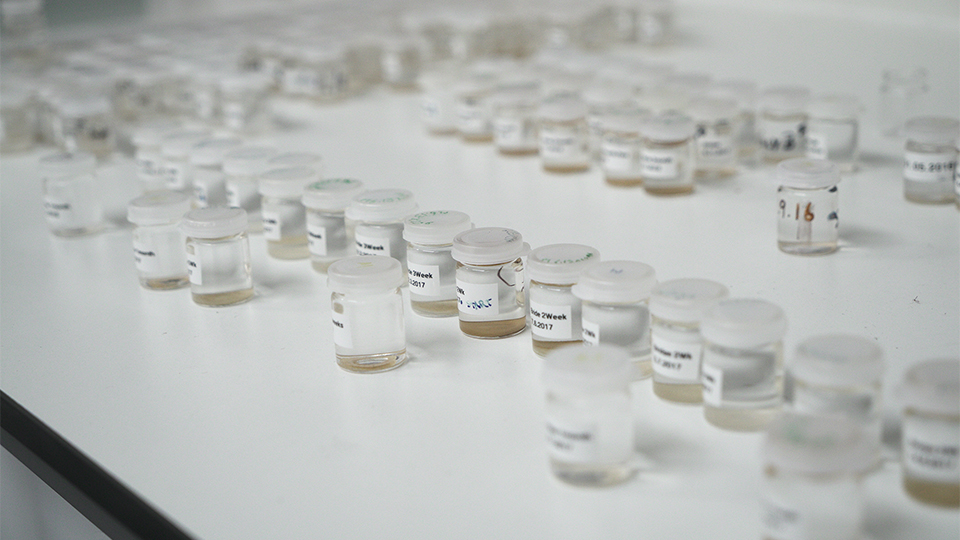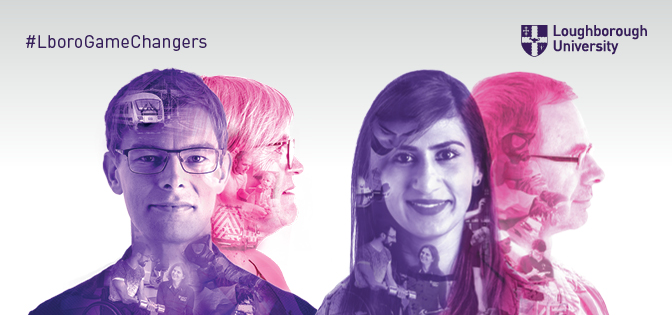The programme responds to the idea that we live in a ‘risk society’, in which ecological crises, global politics and rapid technological advances combine to create a heightened sense of danger and uncertainty. Looking at the ways in which risk is produced, exploited and managed, the project will see academics and artists come together to create a string of playful, creative commissions.
The programme features two year-long commissions, as well as three artists in residence who will work closely with Loughborough researchers to explore the topic from a range of disciplines and perspectives.
Sonia Levy and Stine Marie-Jacobsen began researching their projects at the University this autumn. Sonia has been working closely with colleagues from the Department of Geography to explore climate risks relating to the changing ecosystems in lakes and rivers in the local region.
Organised by Professor Paul Wood and Dr David Ryves, Levy will develop a film exploring the invasive and non-native species finding homes in East Midlands lakes, rivers and canals as the temperature rises.
Speaking about the project, Sonia Levy said: "Working closely with scientists at Loughborough University on this project has provided timely context and proximity, helping to frame my understanding of the issues that are affecting bodies of water in the Midlands.
“I hope this dialogue between research and art, that I will be developing through this commission, will help to create a description of the kinds of lives that are made in human-disturbed landscapes and, importantly, question the kind of futures that are possible in them.”
Body Weather is Stine Marie-Jacobsen’s art and healthcare commission, in which she will collaborate with scientists and designers to develop a toolkit designed to measure physical responses to pollution in air, water, earth and changing temperatures (fire). Jacobsen’s project explores processes of translation and the science of measurement, which is central to risk management.
In addition, three artists in residence will develop new projects: duo FRAUD, Libby Heaney and researcher Theo Reeves-Evison. FRAUD will trace the risks produced by the global trade in phosphate to Western Sahara, where much of the world’s supply is made illegally creating conflict and dangerous labour conditions. Libby Heaney is producing a musical performance for a singer (Nabihah Iqbal) and an AI bot, utilising inherent chance within machine learning. Theo-Reeves-Evison is devising guided walks through forests which explore the ‘financialisation’ of nature.
The programme of events related to this project taking place next year will comprise performance, workshops and talks and includes a new composition by Helen Papaioannou, who will develop a series of musical strategies which introduce risk to social relations.
The academic lead for the Risk-Related project is Senior Lecturer in Sustainable and Resilient Urbanism, Dr Ksenia Chmutina.
Radar Producer Laura Purseglove commented: “The Risk-Related programme allows us to work with academics from across the University, as so much interesting research at Loughborough touches on risk. It also allows us to address some of the most pressing issues of our time, and to work with exciting artistic voices.”
More information about Risk-Related can be found on the Radar website.
Radar is LU Arts’ commissioning and research programme, which invites artists to produce new work in response to and as part of research undertaken across the University’s two campuses, bringing artistic and academic work together.
For more information, please contact LU Arts by emailing LUArts@lboro.ac.uk or calling 01509 222948.

